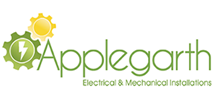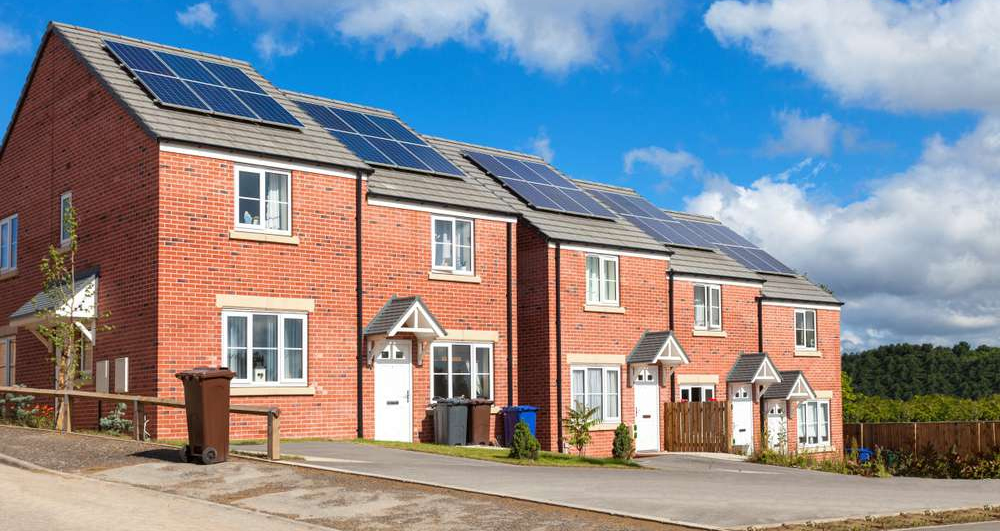Today, we need to harness the power of the sun more than ever before. Too many of our energy sources are harmful to our planet. It’s one of the main reasons we started helping people to install renewable sources of energy.
There are over one million solar panel installations in the UK today. Both homeowners and businesses are reaping the rewards of reduced energy bills while simultaneously reducing their impact on the environment.
Although beneficial, solar panels cost upwards of £5,000 to install. To encourage us to install solar panels, the government provided subsidies and grants that led to considerable increases in solar panel installations.
But with the end of the government-backed Feed-In-Tariff (FIT) scheme, many individuals have become less convinced of the case for installing new solar panels because they are such a significant upfront investment.
So, is it still worth it to invest in a new solar panel installation in the UK today? Here we take a look at how much your solar panel really costs and if the investment is still worth it in 2021.
How Much Do Solar Panels In The UK Cost?
The cost of solar panels largely depends on your household or business needs. The more amenities and residents you have, the more electricity you’ll need to keep them all powered up. The overall price of your solar panel installation increases with your power needs.
On average, a single solar panel costs about £350 per panel, with the total cost being between £5,000 and £10,000. All homeowners can expect to spend at least £5,000 on a solar panel installation, no matter their property size. Entry-level solar panels with a 3kW panel system that produce 2,700kWh of energy annually cost between £5,000 – £6,000. On the other hand, a 6kW panel system producing 5,400kWh can cost between £8,000 – £10,000.
Your solar panels’ price will also be influenced by the number of panels your property needs, Smart Export Guarantee (SEG) payments, and your total energy savings.
How Much Can You Save With Solar Panels?
Many homeowners choose to have solar panels installed because it will save them money in the long run. Solar energy can lower your energy bills by decreasing the amount of energy you buy from the grid. Homeowners can also recoup their investment through SEG payments.
SEG has replaced the FIT programme. Under the FIT programme, businesses would pay you a generation and export tariff at government-fixed rates. Homeowners could earn 4p per kWh for the energy they generated and an additional 5.38 per kWh for any excess energy they returned to the grid. Although FIT came to an end in 2019, you can still save through the SEG, but energy companies no longer pay the fixed-rate.
To give you an example, Photovoltaic (PV) installations can lower energy bills and could save a London property owner between £100 and £270 a year. In areas like Manchester, where there is slightly less average sunshine hours per day, the savings can range between £90 and £230 per year.
Using energy at the right time can increase your chances of saving too. If you use most of your electrical appliances during daylight hours, you will be able to make significant returns on your investment as you won’t have to draw from the grid. If most of your power use takes place at night, you will inevitably have to rely on the National Grid.
Of course, you can dodge this problem by investing in solar battery storage, which allows you to save what you generate and use it during the evenings. However, you’ll receive less money in the form of SEG payments.
How Long Does It Take for Solar Panels To Be Paid Back?
The average solar panel payback time differs for each property and depends on several factors, including whether you receive SEG payments or not.
Let’s assume you purchased an average PV solar system of around £6,000. With SEG payments and energy savings, it could take you between 16 and 22 years to earn back your solar panel investment. Although SEG tariffs differ per supplier, a reasonable rate of 4-6p/kWh could pay back your solar panel as early as 15 years.
Without the SEG, you would only be relying on energy bill savings because of the decreased reliance on the grid. However, with a solar battery storage system, you could achieve a similar payback period to that of a homeowner receiving SEG payments since you could become primarily self-sufficient.
So, Are Solar Panels Still Worth it in 2021?
At Applegarth, we understand that installing solar panels is not a decision taken lightly. There are considerable upfront costs involved that make many customers wonder if they will be making a significant return on their investment.
We can confidently say that today’s solar panel installations are as worthwhile as they were 5-10 years ago, if not more so, seeing as solar panel costs have continued to fall. Solar battery storage systems have also improved quite dramatically, leading to better electricity utilisation.
Better yet, they can also increase the resale value of your property as today’s buyers are more environmentally conscious and interested in future-proofing their homes. The money you spend on solar panel installation directly influences your property’s value since you’re effectively increasing it by at least £5,000.
So, in a nutshell, yes – solar panel installation in 2021 is still worth it.
Why Should You Get Solar Panel Installation From Applegarth?
To ensure that your solar panel installation is as hassle-free as possible, you will need a professional solar panel installation company such as Applegarth.
We have been providing high-quality services to residential and commercial clients right across the UK since 2006. As specialists in renewable energy solutions, we can advise you of the best solutions for your property and help you to become more self-sufficient.
Contact us today at 0151 6498 450 or email us at info@applegarth.co.uk. An experienced staff member will be more than happy to answer any of your questions concerning the solar panel installation process.








